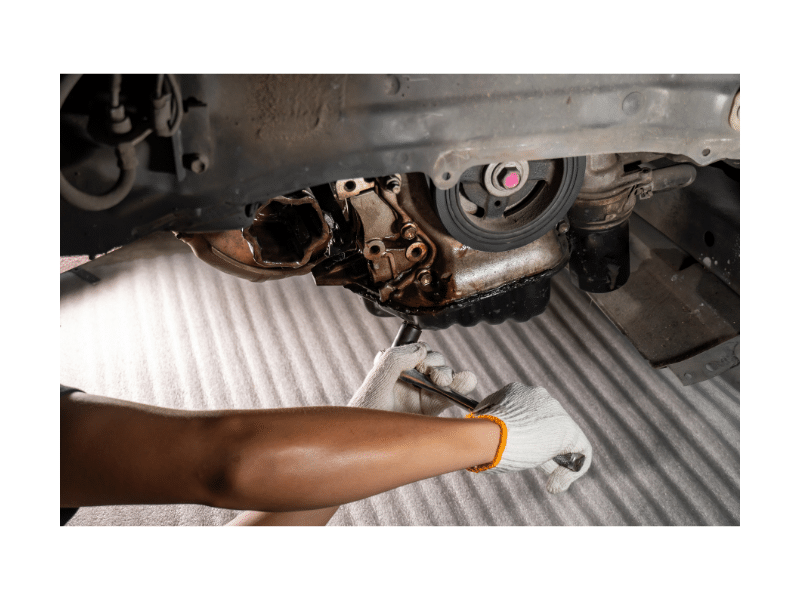Engine oil lubricates the engine’s moving parts to reduce friction. Driving with low engine oil levels can significantly impact performance and reduce the lifespan of your vehicle. Clean oil can prevent the buildup of sludge that may clog the narrow passages in your engine, which can increase the vehicle’s oil consumption and affect the vehicle’s performance adversely. So, the last thing you want in your vehicle is an oil leak.
Oil leaks not only cause low oil pressure but also cause unnecessary wear and tear to the engine. If you are noticing any signs of an oil leak such as an illuminated oil light or puddles under your vehicle, you may wonder is the cause of the leak. Here are some of the common causes of engine oil leaks:
Damaged oil filter
The oil filter removes impurities from the oil before they can cause any damage to the engine. Over time, the oil filter begins to degrade and may not work as efficiently as it should. Once debris builds up and blocks the oil filter, the oil may begin to leak out. Also, the pressure from within the engine may cause the oil filter to become loose. Once the oil filter becomes clogged, it should be replaced at the earliest. Ideally, the oil filters should be changed every six months or earlier, depending on the manufacturer’s recommendations.
Bad gasket
A damaged or worn gasket is a common cause of oil leaks. A gasket acts as a seal between different components of the vehicle. The engine has many gaskets, and over time, any of these gaskets can wear out and cause a leak. The leak can be due to a worn valve cover gasket, timing cover gasket, cylinder head gasket, or an oil pan gasket. Locating a damaged gasket is not something you can easily do. It is best to have a mechanic identify and fix the issue.
Irregular oil changes
Engine oil should be changed routinely as part of your vehicle’s periodic maintenance. The engine oil contains additives such as friction-reducing and anti-rust agents. When you fail to change oil regularly, it can reduce the concentration of these additives and also cause a build-up of debris and dust. Over time, oil becomes thick, which can put pressure on the oil gasket seal. This, in turn, can weaken the seal and cause oil leaks. Reduced concentrations of additives can put the engine parts at risk of corrosion and oil leaks.
Excess engine oil
Excess engine oil is the most common cause of oil leaks. If the reading on your oil pressure gauge is high and you are noticing a strong burning smell along with blue exhaust smoke, you likely have excess engine oil in your vehicle. You can check oil levels using a dipstick tube. If the level is indeed high, take your vehicle to the mechanic right away for an oil change.
Loose drain plug
During an oil change, the mechanic has to remove the drain plug to empty the old oil from the engine. Over time, the plug may become loose and the gaskets may wear out. Failure to tighten the drain plug properly after the oil change can also cause a leak. Tightening the drain plug can do the trick. If it is worn out, it can be replaced easily.
Engine oil leaks can put your vehicle in jeopardy. Bring your vehicle to us for a thorough inspection. We will diagnose the problem and fix it effectively.


